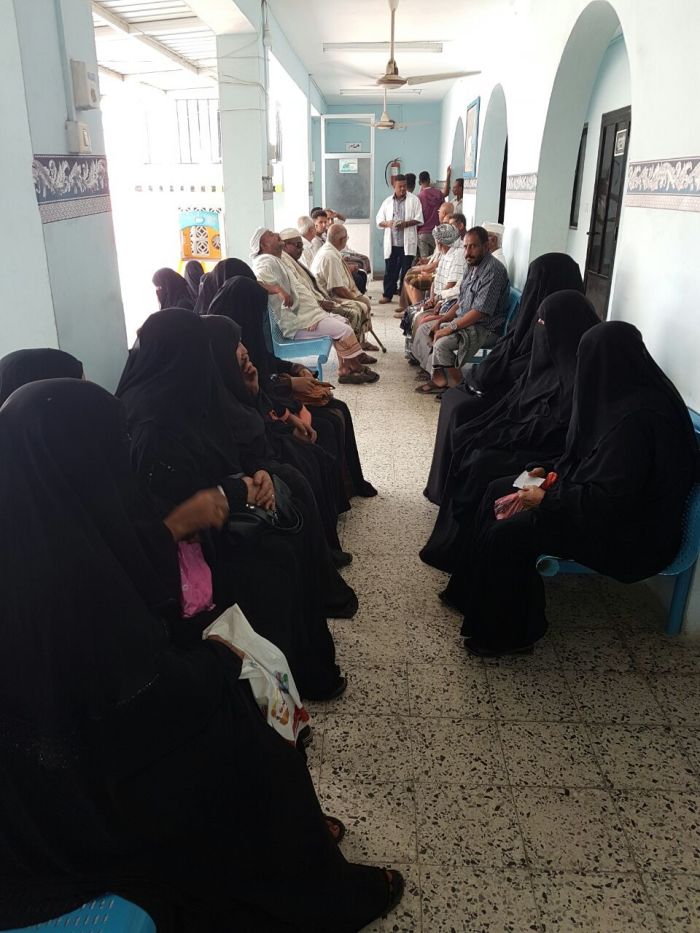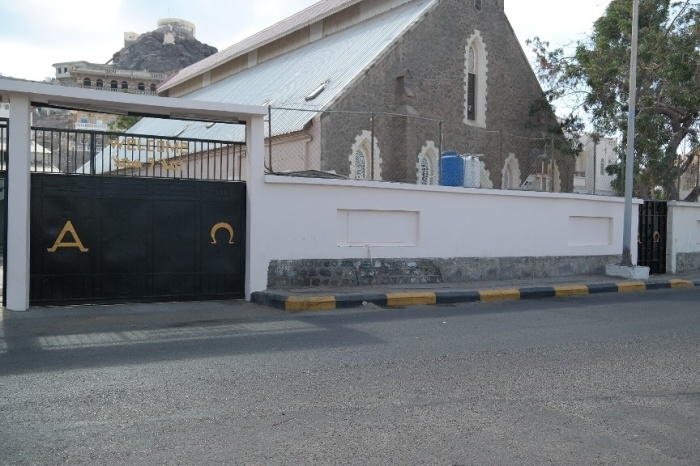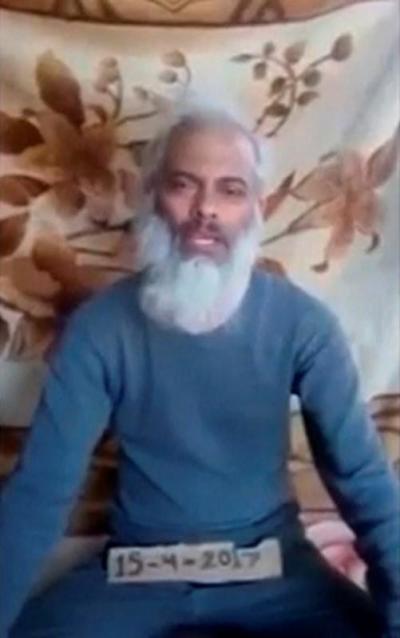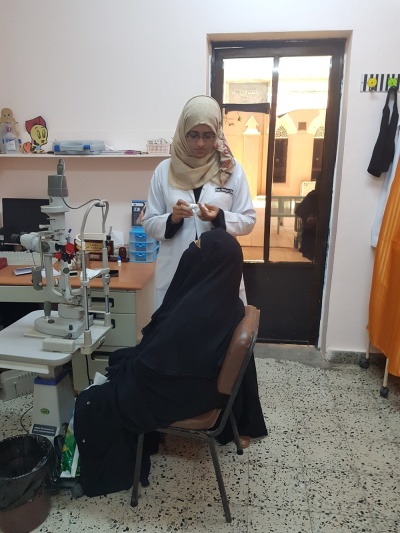What you should know about Yemen and its tiny Christian population

In case you haven’t heard already, Yemen has been facing what many have called the world’s worst humanitarian crisis.
The Middle East country, located at the end of the Arabian Peninsula, has a population of over 28 million and 22 million of them need humanitarian assistance (16 million don’t have enough food).
Much of the famine is a result of the civil war that began years ago. So how did the crisis begin and what is it like for Christians in Yemen?
Here are five things you should know.
1. 2011 uprising
Thousands of protesters called on President Ali Abdullah Saleh, who had been in office for more than three decades, to step down over the collapse of the economy, corruption and repression.
Forced to resign, Saleh transferred power to his deputy, Abdrabbuh Mansour Hadi. But Saleh remained in Yemen and formed an alliance with the Houthi rebels (made up of the Zaidi Shia Muslim minority who have been attempting to gain power for decades) who gained control of Sanaa, the country’s capital. The Zaidi believe only a descendant of the Islamic prophet Muhammad should rule Muslims.
Hadi was forced to flee the country in March 2015, under attack both by the Houthis and security forces still loyal to Saleh. This is when Saudi Arabia (Yemen’s neighbor) entered the fray, fearful of the spread of what it believes is Iran-backed Shia powers in Yemen.
The Saudi Arabian Kingdom, along with other Sunni Arab states, have been carrying out an air campaign ever since, looking to return power to Hadi and his government.
Note: 99.1 percent of Yemen’s population is Muslim; 65 percent are Sunni and 35 percent are Shia.
The civil war has been at a stalemate, with coalition troops supporting the Hadi government holding control of much of the country, including Aden, while the Houthi forces continue being in control of significant northwestern regions.
The turmoil has allowed militant groups, including al-Qaeda in the Arabian Peninsula, and an affiliate of the Islamic State terror group, to capture territory in the south and carry out deadly attacks.
The stalemate has produced the worst humanitarian crisis in the world.
2. The worst humanitarian crisis is ‘getting worse’
Mark Lowcock, under-secretary-general for Humanitarian Affairs and emergency relief coordinator for the U.N. Office for the Coordination of Humanitarian Affairs, described the immense scale of the tragedy in a briefing to the U.N. Security Council in December.
Calling the statistics "shocking," Lowcock said that more than 20 million Yemenis, or two-thirds of the entire population, are food insecure, with over half of the districts across the country having slipped into "emergency" conditions.
"Yemenis’ livelihoods and access to income have been decimated, and agricultural production has fallen by nearly a third. These developments have left millions more Yemenis unable to afford food and other essential goods. And food prices are 150 percent higher than they were before the crisis," he said.
“I can again confirm again what humanitarian agencies have known for a long time: a terrible tragedy is unfolding in Yemen. And it is getting worse. Millions of people are starving, sick and desperate. They have one message for the world: this war needs to stop.”
Vernon Brewer, founder and CEO of World Help, lamented that Yemen has now faced close to four years of crisis.
“Food is the most urgent need. Millions of children across Yemen are starving to death because of a war they have nothing to do with. If we don’t respond immediately to this tragedy, what does that say about us — as a nation and as Christians whose goal is to show love to others?”
According to children's agency UNICEF, close to 2 million children will need food assistance in 2019; over 6,700 have been killed since the start of the conflict; and over 2,700 boys have been forced into armed groups.
The Venerable Canon Bill Schwartz, OBE, the archdeacon of the Anglican Diocese of Cyprus and the Gulf, which oversees Christ Church Aden, told The Christian Post that what is happening in Yemen is a "horrendous problem," one that affects all Yemenis, regardless of their religious background.
"The U.N. is trying to do what they can. The rebels and the coalition are both guilty of all kinds of atrocities. The manipulation of the economy from the Yemeni government as a tool of war, and the manipulation of the transportation of food and medicine as a tool of war, is on both sides,” Schwartz noted.
The death toll has been a subject of dispute. While conservative numbers cited by the U.N. place it at around 10,000 people, the Armed Conflict Location & Event Data Project maintains that the number is around 60,000 casualties.
“ACLED’s estimation of Yemen’s direct conflict deaths is far higher than official estimates — and still underestimated. Fatality numbers are only one approximation of the abject tragedy and terror forced upon Yemenis from several sides. This cannot be overstated," said ACLED Executive Director Clionadh Raleigh in a press release in December.
Meanwhile, Schwartz said he is "quite frustrated that the media doesn’t pay enough attention" to the crisis in Yemen.
"It doesn’t create awareness among the people about how dire the situation is," he said, while acknowledging that many are unfamiliar with Yemen.
“Syria is well known to people, Iraq is well known to people, and both have been in the news a lot in the last generation,” he noted. “[But] Yemen has just not been in the news, people know so little about it, most people would not be able to identify it on the map.”
3. What it’s like for Christians

According to the U.S. State Department’s International Religious Freedom Report, Christians, Jews, Bahais and Hindus make up less than 1 percent of the population. Many of the Christians (Roman Catholics and Anglicans) are refugees or temporary foreign residents.
Islam is the state religion and Sharia (Islamic law) is the source of all legislation. Though Yemen’s constitution allows for freedom of thought and expression, it does not mention freedom of religion, belief or conscience.
Proselytizing Muslims is illegal and conversion from Islam to another religion is apostasy, a capital offense. Those charged with apostasy face the death penalty.
One ministry CP reached out to declined to comment on the situation of Christians in the country, noting that it is too sensitive to discuss.
Open Doors USA, a persecution watchdog group, reports that the persecution Christians face in Yemen is "extreme."
"They face persecution from the authorities (including detention and interrogation), their families and radical Islamic groups who threaten converts with death if they do not re-convert," it notes.
"Tribal law prohibits members from leaving the tribe; the punishment for denouncing Islam can be death or banishment. Both male and female converts to Christianity married to Muslims risk divorce, including losing custody of their children. Christians are suffering from the general humanitarian crisis in the country. But Yemeni Christians are additionally vulnerable since emergency relief is mostly distributed through Islamic organizations and local mosques. These groups allegedly discriminate against all who are not considered to be pious Muslims."
The port city of Aden, the temporary capital of Yemen, has only four church buildings still standing, three Roman Catholic and one Anglican — Christ Church Aden.
Schwartz, who for eight years served as a priest in Saudi Arabia, maintained that Christians do not face overt persecution by the government but he explained to CP that “everything about their (Yemen’s) society is Islamic.”
“You don’t have the freedom of individuality — Muslims, Christians, nobody,” he pointed out.
“You belong to your family, your identity is your family. For you to choose to be different from your family is a great shame on the family. Whether it’s religion, or a choice of your profession, or field of study, who you marry — to go against your family” is extremely problematic, he pointed out.
Thus, going to a public church service “would be a problem,” he added.
“As long as my uncle doesn’t find out, I’m fine,” he illustrated. “The problem isn’t that they have to hide, it’s that they have to work out their relationships with their family.”
4. Kidnappings
Nevertheless, Christ Church Aden does not have a priest present due to the risk of being kidnapped by terrorists.
“Catholics tried to maintain a priest, but he was kidnapped and held for ransom for 18 months,” Schwartz said, referring to Father Tom Uzhunnalil.
“The dangers is not to the priest himself — that is bad enough, [but] there were [16] people killed so that Father Tom could be kidnapped.”
The kidnapping took place at the Missionaries of Charity home in Aden on March 4, 2016, when members of the Islamic State terror group killed 12 civilians and four nuns during their attack on the retirement home.
Sister Sally, who survived, was able to describe the horrifying incident to Catholic news site Aleteia:
"They caught Sister Judith and Sister Reginette first, tied them up, shot them in the head and smashed their heads. They caught Sister Anselm and Sister Marguerite, tied them, shot them in the head and smashed their heads in the sand."

Uzhunnalil, the Salesian priest who was taken during the raid, was held by the Islamic extremists for over 18 months. Initial fears that he had been crucified on Good Friday in 2016 proved untrue, and the 57-year-old thanked "God's intervention" following his release in September 2017.
Schwartz reflected that due to how big the kidnapping industry in Yemen is right now, with American citizens also taken, he would “put all our people in Yemen in danger” simply by visiting them.
“It is a commercial thing. The people who are coordinating it, a lot of it is al-Qaeda. They would say ‘I will give you $5,000 USD for an American.' And then they will turn around and want $2 million. For them, it’s a business.”
As for who would be able to pay such a sum, the archdeacon noted that in Yemen, where people have been chronically impoverished for generations, they get the impression that “everyone else has more money than they know what to do with.”
“I have known many people who have been kidnapped and their families. It is pretty much a random problem based on the pathology of money.”
5. ‘Church Clinic’: A positive development
Christ Church Aden is serving the impoverished community through its cooperation with Muslims at the Ras Morbat Eye Clinic, which is located on church grounds.
“Their work over the past 20+ years, especially since and during the current fighting, is a testimony of courage and interfaith cooperation for the service of the people, especially those who are poor and dislocated,” Schwartz said.

He explained that the cooperation came about following the collapse of the Communist regime at the start of the 1990s. Christ Church Aden agreed with the government to do something good for the people, but since there already was a primary health clinic nearby, they decided to focus on eye care.
"They feel very privileged to be helping the poor people in society in the context of a place where prayer happens," the archdeacon said of the Muslim staff.
"The South Yemenis are not radical Muslims, the people along the west coast are more fundamentalist. They are not radicalized Muslims in the Aden area,” he said, adding that they are “very happy” for the church to be a place where “people pray and poor people are served.”
One of the workers, identified as Mansour, told CP that he works as public relations manager, supervisor of the church and the eye clinic, and coordinator between the government facilities, the church and the clinic.
“We thank their support and efforts they have put, which [has] led to the success of the clinic. Although it is called Ras Morbat Clinic, it is well known [among] the people as the Church Clinic,” he noted.
He revealed that a British doctor named John Sandford Smith has been visiting the clinic since 2001.
“He started interacting with the clinic by training the Yemeni doctors and nurses working in the clinic and [performing] special operations and one-eyed patient operations,” Mansour said.
“On every visit, he would come to Aden for two weeks. First week to train the doctors and perform special eye operations in the clinic, and the second week to visit a remote area, city, or village and [other] needy places for eye operations, which was very [unusual] and had never been done before here. He trained Yemeni doctors to become eye specialists, [and] now after God's blessings and the support of the church and the help of Dr. John, the Department of Ophthalmology has a huge, respected and considerate reputation here in the city of Aden under the name of Church's Clinic.”
Mansour said that the cooperation that exists among religions is essential.
“The clinic is the only clinic run by a church in Aden and Yemen, which raises awareness of the importance and raises the respect being given to the religion,” he said.




























